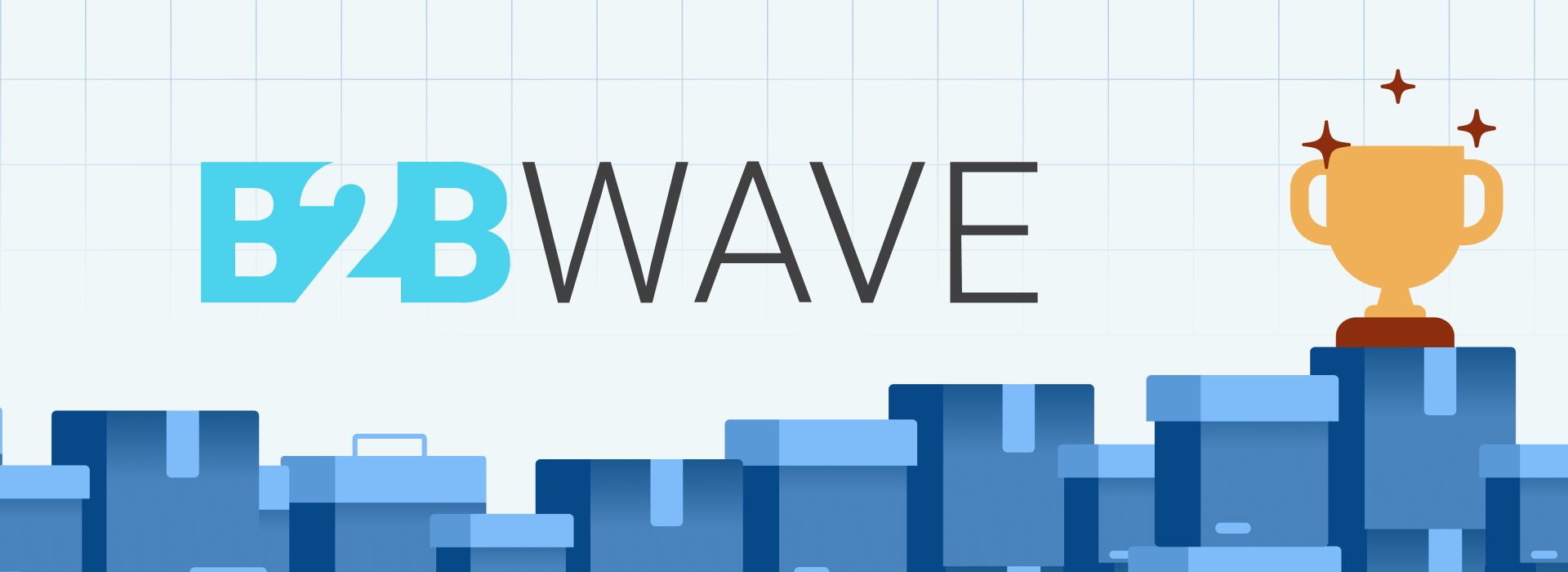Leverage Social Media for Your Wholesale Business with 5 Expert Tips
%20(1).png)
The Ultimate Guide to Marketing for Wholesalers
The Essential Guide to Virtual Trade Shows for Wholesalers
.png)
In today’s interconnected and digital-driven world, wholesalers and B2B buyers have evolved beyond the traditional brick-and-mortar and paper-and-pencil models. They have embraced B2B eCommerce, digital marketing, and social media.
In fact, according to a CMO survey, B2B companies allocate between 8.5 – 10.3% of their revenue on marketing, with around 50%-55.6% of it spent on digital marketing.
In other words, in this era of communication, wholesalers are stepping into the spotlight of the digital stage and seizing the golden opportunity to tap into the vast potential of these online turfs–especially social media.
By the end of this article, you’ll better understand key strategies for using social media, such as Twitter and LinkedIn, to your advantage. Let’s dive in and explore how you can make social media work for your wholesale business.

Why does social media matter for B2B marketing?
Social media platforms are more than just avenues for sharing cat memes; they’ve emerged as powerful tools for businesses to connect, engage, and thrive.
These digital platforms present unprecedented opportunities for B2B companies to grow their revenue, reach, and influence, including:
- Brand awareness and building: With a projected user base of over 4.41 billion by 2025, establishing a presence on social media platforms, wholesale brands, and distributors can significantly enhance their visibility and reach a broader audience. Also, these platforms provide a space to showcase and promote brand identity effectively, helping to distinguish your brand from competitors.
- Lead generation: Using targeted content and advertising, wholesalers can attract and identify potential customers through social media.
- Promotions: From sponsored posts to targeted ads, social media platforms present B2B marketers with a series of tools and ad options to plug new products and push brands to specific audiences.
- Engagement: Through social media, B2B companies can interact with their audience directly and boost customer trust and loyalty. Need more proof? Research shows that social media influences 75% of B2B buyers and 84% of C-level executives when making purchasing decisions.
- Market research: Wholesale companies can get valuable insights into trends and customer preferences by monitoring conversations, comments, and interactions. As a result, they can adapt their marketing strategies accordingly.
Ultimately, from enhancing brand building and visibility to forging meaningful B2B relationships and expanding market reach, the possibilities on social media are boundless.

5 expert tips for leveraging social media for wholesale
Creating compelling social media posts is no easy feat–but getting it right can make a huge difference to the success of your wholesale business. Below, you’ll find five expert strategies to get the most out of social media, create an optimized online presence your customers will appreciate, and ensure you get the best return on investment.
1. Define your objectives
Like you wouldn’t start a hike without a map or compass, establishing an online presence cannot begin without outlining your social media objectives. They serve as a roadmap for what B2B companies aim to achieve. Measurable results heavily rely on having well-defined goals, increasing brand awareness or engagement with your wholesale brand, or generating leads. Eventually, objectives help marketers refine content, strategy, and metrics to align with their business goals.
For example, if you’re looking to increase brand awareness for your eco-friendly packaging wholesale company, this objective would translate to building up your follower base to amount to a specific number (e.g., reach 5,000 followers). To do so, you could develop a series of posts with tips to reduce environmental impact or present the benefits of eco-friendly products and the importance of sustainability.
Eventually, setting your objectives will lead to choosing the right social media platforms to fulfill them. B2C companies may prioritize more consumer-driven media, such as TikTok and Instagram, while their B2B counterparts may want to focus on a more business-oriented platform like LinkedIn.
2. Educate–don’t sell
Social media platforms serve as a real-time source for industry news, trends, or exciting developments for B2B buyers. They are also the perfect space to establish thought leadership. So, sharing informative content, insights, and expert options on social media platforms is crucial for wholesale companies.
For example, let’s say you have a bridal wear wholesale distributor; you can create an infographic on how a bride-to-be can choose the perfect gown for their wedding and showcase illustrations or images of dresses in different styles based on specific themes (e.g., modern chic, bohemian cool, classic cut).
Think about providing helpful and engaging content to your followers, which they can discuss, share, and connect with your company–instead of solely focusing on selling.
And remember: you speak to humans, not just businesses. As a LinkedIn study reports, 64% of business executives said they’d rather have thought leadership that had “a more human, less formal tone of voice” over thought leadership that had “an even-toned, intellectual voice.”

3. Engage with followers and peers
Social media is a two-way street. One of the best ways to harness the power social media platforms can give to your wholesale business is by interacting frequently with your followers.
For instance, you can reply to messages and comments, answer questions about your products and services, or invite followers to share their unique experience and knowledge about a specific subject (i.e., ask them for tips or feedback). With these simple steps, you demonstrate your commitment to customers, create an open dialogue, increase transparency, and build more trusting relations.
Also, you can join groups (e.g., about supply management) or follow pages and profiles related to your industry to increase your visibility, share knowledge, and connect with peers and potential business partners.
4. Feature customer stories
Customer stories, like success stories, reviews, or interviews, are a great way to humanize your brand, build credibility and trust among your followers, create an emotional connection with them, and highlight your products and services’ value.
Also, testimonials showing a customer’s positive experience using your products and the challenges it solved for them can serve as social proof. They can spur lead generation as they may influence potential buyers and help them overcome their hesitation.
In addition, it’s an excellent way to gather feedback about your offering–you can use this information to improve your products continually and show that you care and value customer input.
5. Use compelling visuals
Not breaking news: A picture is worth a thousand words–especially on social media. Almost 75% of marketers use visuals on social media to cut through the noise.
High-quality, clear, crisp images or professional videos can make a significant impact, make your posts look smart, are more likely to attract attention, and generate better conversions.
Finally, being attentive and consistent with your branding is crucial to maintaining a cohesive brand identity: use the same brand colors, fonts, and messaging in your social media profiles and posts.

What else to keep in mind?
Social media platforms are not just a tool but a dynamic ecosystem where B2B brands and companies nurture relationships with customers, share their stories, and come to life. In their vibrant, ever-changing landscape, it’s essential to constantly:
- Stay informed. Keep up with changes in social media algorithms to ensure your posts reach your audience.
- Measure and analyze data. Use social media analytics to monitor the effectiveness of your posts and adapt your content strategy accordingly.
Final words
With 46.5% of B2B buyers worldwide preferring to reach sellers through social media, it’s clear that the potential of these powerful platforms can be a game-changer for your wholesale business.
By staying informed, adapting to changing algorithms, analyzing data, and employing the expert tips shared in this article, B2B companies can reap the full potential of these platforms. Ultimately, leveraging these platforms means you can build awareness, connect with your audience, and drive meaningful business results.
Feeling sociable? You can seamlessly link your social media platforms to your B2B Wave storefront. Book a demo with our sales experts today to discover more about the marketing opportunities our wholesale eCommerce platform offers.


The Ultimate Guide to Marketing for Wholesalers
%20(1).png)

The Essential Guide to Virtual Trade Shows for Wholesalers
%20(1).png)







